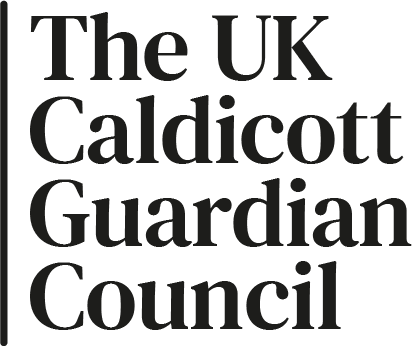Council Meeting
18th April 2019
Present
Dr Chris Bunch (Chairman), Sandra Lomax (Vice-chair), Dr Faouzi Alam, Prof. Allison McCallum (dial in), Dr Arjun Dhillon, Helen Dyer, Christopher Fincken, Tim Kendall, Andrew Harvey, Mr Adrian Marchbank, Nina Monckton, Dr Cait Taylor.
Guests
Dr Adam Al-Khafhai, Graham Kendall, Dawn Monaghan, Prof. Stephen Powis, Imogen Stephens
Observers
Dawn Monaghan, Heidi Shute, Ross Thornton.
Apologies
Prof. Simon Barton, Prof. Martin Crook, Stephen Hinde, Dr Matt Noble, Richard Powley, David Riley, Gill Weatherill, Gill Bennett, Carey Bloomer, Air Cdr. Withnail, Dale Phillipson.
Conflicts of interest from Sandra Lomax and Christopher Fincken (as training providers) were noted.
Chairman’s update
The Chairman updated the Council on his recent activities including speaking about the Council at the Digital Health Rewired conference; attending the National Data Guardian’s consultation launch and an event celebrating the NDG’s role receiving statutory footing; the NDG’s Panel, where the proposed transition of Type 1 objections was discussed, and the NHS code of Confidentiality working group.
Vice Chair’s update
The Vice Chair updated the Council on the engagement with the Scottish Caldicott Guardian network and the recent publication (on the UKCGC website and Police Intranet) of the Missing Persons guidance, developed in collaboration with the National Crime Agency.
Regional networks
The North network provided an update on planning for the UKCGC North network workshop planned for 5 July 2019.
The London network reported a recent well-attended meeting, and plans for their next meeting — to be held at the DHSC on 3 July 2019.
The South West network reported plans for a meeting on 24 April 2019.
Requests for advice to UKCGC
The Council discussed recent requests for advice that have been received by the UKCGC mailbox or raised on the Digital Health Caldicott Guardian forum. These requests included topics such as how to deal with the requesting of CCTV footage from NHS premises, patients that may be drink driving to and from appointments, the recording of consultations and clinical staff by patients, and the handling of patient information by multi-disciplinary teams that may know the patient personally.
Full details of requests for advice can be provided on request, and some are also available to view as discussion topics on the digital health Caldicott Guardian forum.
Caldicott Guardians and supporting staff may contact the Council for advice by email to the Secretariat, via the Council website support page, or by posting to the Digital Health Networks Caldicott Guardians’ online forum.
National Medical Director
Professor Stephen Powis, National Medical Director and Caldicott Guardian for NHS England & NHS Improvement, described his roles and the key areas of work for which he is responsible.
As the National Medical director, he is responsible for many significant areas including the Medical Directorate (which covers professional standards for doctors) and the Clinical Policy Unit (which develops clinical policy). With the amalgamation of NHS England and Improvement, he also has new responsibilities for information governance.
Prof. Powis’ remit also includes the delivery of the long-term plan, including cardiovascular, women/children and patient safety programmes, the delivery of policies into local healthcare regions, and the clinical review of standards.
Prof. Powis is a keen advocate of digital and a significant part of his role is to help drive the digital agenda working with the Chief Clinical Information Officer for Health and Care Dr Simon Eccles, and Will Smart—Chief Information Officer for Health and Care in England.
Local Health and Care Record Exemplar IG update
Dawn Monaghan, Head of Data Sharing and Privacy at NHS England, updated Council on the latest progress of the Local Health and Care Record Exemplar (LHCRE) Information Governance framework. Dawn reported that the Department for Health and Social Care (DHSC) has written to the arms-length bodies to clarify that demographic information may be personal but is not considered confidential as a policy line in the framework. Discussions continue on whether the common law duty of confidentiality allows patient data collected in confidence to be anonymised without consent.
Data sharing between GP out-of-hours services and secondary care
Dr Adam Al-Khafaji from Barking Havering and Redbridge University Hospitals Trust presented to Council members about his varied experiences as a junior doctor using information systems across a number of health and care settings and regional boundaries.
Dr Al-Khafaji had seen a range of information sharing processes and systems, in some instances these had been extremely helpful in supporting effective patient care and safeguarding, on other occasions the lack of essential information being shared, and integrated systems has been a significant risk to patient care
Independent Health Provider Network
Graham Kendall from the NHS confederation, and Imogen Thomas—Medical Director and Caldicott Guardian for Marie Stopes UK—gave a presentation about the Independent Health Provider Network (IHPN).
The IHPN is a trade association representing independent sector providers of NHS clinical services and providers of privately funded services. Statistics regarding private providers and the nature of acute activity that is referred to private providers were presented. Members of the network deliver a diverse range of services and there are many Caldicott Guardians within the network as highlighted by those already included on the Caldicott Guardian Register.
The IHPN and UKCGC agreed that there were clear synergies between the groups and plan to arrange for the UKCGC to attend a future IHPN meeting to raise awareness of the resources and mechanisms the UKCGC has developed to support Caldicott Guardians.
Other business
Sandra Lomax vice chair of the UKCCG raised for discussion the current advice around the suggested frequency of Caldicott Guardian training. There is currently no suggested timeframe to ensure that Caldicott Guardians maintain their development and are refreshed on the responsibilities of the role and Council members were asked for their opinions on this matter.
